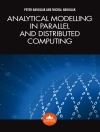The 7th IFIP Workshop on Software Technologies for Future Embedded and Ubiquitous Systems (SEUS) followed on the success of six previous editions in Capri, Italy (2008), Santorini, Greece (2007), Gyeongju, Korea (2006), Seattle, USA (2005), Vienna, Austria (2004), and Hokodate, Japan (2003), establishing SEUS as one of the emerging workshops in the ?eld of embedded and ubiq- tous systems. SEUS 2009 continued the tradition of fostering cross-community scienti?c excellence and establishing strong links between researchand industry. The ?elds of both embedded computing and ubiquitous systems have seen considerable growth over the past few years. Given the advances in these ?elds, and also those in the areas of distributed computing, sensor networks, midd- ware, etc., the area of ubiquitous embedded computing is now being envisioned as the wayof the future. The systems and technologies that will arise in support of ubiquitous embedded computing will undoubtedly need to address a variety of issues, including dependability, real-time, human–computer interaction, – tonomy, resource constraints, etc. All of these requirements pose a challenge to the research community. The purpose of SEUS 2009 was to bring together – searchersand practitioners with an interest in advancing the state of the artand the state of practice in this emerging ?eld, with the hope of fostering new ideas, collaborations and technologies. SEUS 2009 would not have been possible without the e?ort of many people.
قائمة المحتويات
Design and Implementation of an Operational Flight Program for an Unmanned Helicopter FCC Based on the TMO Scheme.- Energy-Efficient Process Allocation Algorithms in Peer-to-Peer Systems.- Power Modeling of Solid State Disk for Dynamic Power Management Policy Design in Embedded Systems.- Optimizing Mobile Application Performance with Model–Driven Engineering.- A Single-Path Chip-Multiprocessor System.- Towards Trustworthy Self-optimization for Distributed Systems.- An Experimental Framework for the Analysis and Validation of Software Clocks.- Towards a Statistical Model of a Microprocessor’s Throughput by Analyzing Pipeline Stalls.- Joining a Distributed Shared Memory Computation in a Dynamic Distributed System.- BSART (Broadcasting with Selected Acknowledgements and Repeat Transmissions) for Reliable and Low-Cost Broadcasting in the Mobile Ad-Hoc Network.- DPDP: An Algorithm for Reliable and Smaller Congestion in the Mobile Ad-Hoc Network.- Development of Field Monitoring Server System and Its Application in Agriculture.- On-Line Model Checking as Operating System Service.- Designing Highly Available Repositories for Heterogeneous Sensor Data in Open Home Automation Systems.- Fine-Grained Tailoring of Component Behaviour for Embedded Systems.- Map Reduce System over Heterogeneous Mobile Devices.- Towards Time-Predictable Data Caches for Chip-Multiprocessors.- From Intrusion Detection to Intrusion Detection and Diagnosis: An Ontology-Based Approach.- Model-Based Testing of GUI-Driven Applications.- Parallelizing Software-Implemented Error Detection.- Model-Based Analysis of Contract-Based Real-Time Scheduling.- Exploring the Design Space for Network Protocol Stacks on Special-Purpose Embedded Systems.- Hiper Sense: An Integrated System for Dense Wireless Sensing and Massively Scalable Data Visualization.- Applying Architectural Hybridization in Networked Embedded Systems.- Concurrency and Communication: Lessons from the SHIM Project.- Location-Aware Web Service by Utilizing Web Contents Including Location Information.- The GENESYS Architecture: A Conceptual Model for Component-Based Distributed Real-Time Systems.- Approximate Worst-Case Execution Time Analysis for Early Stage Embedded Systems Development.- Using Context Awareness to Improve Quality of Information Retrieval in Pervasive Computing.- An Algorithm to Ensure Spatial Consistency in Collaborative Photo Collections.- Real-Sense Media Representation Technology Using Multiple Devices Synchronization.- Overview of Multicore Requirements towards Real-Time Communication.- Lifting the Level of Abstraction Dealt with in Programming of Networked Embedded Computing Systems.












